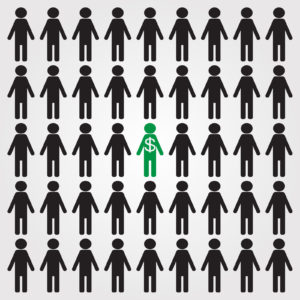The last time Massachusetts voters had the opportunity to strike down the commonwealth’s regressive and antiquated flat income tax was in 1994. That year, a ballot initiative to add a second tax bracket was voted down by a 2-1 margin.
This time was supposed to be different. Occupy Wall Street, the Bernie Sanders presidential campaign, and two decades of hard data on our growing economic divide had all laid down a foundation for why income inequality needed to be addressed.
Voters were on board, with early polling showing significant support for a 2018 ballot initiative to pass a state constitutional amendment to tax millionaires. It passed the state legislature, a requirement in Massachusetts for constitutional amendments, with overwhelming support.
Who wasn’t on board? The Massachusetts Supreme Judicial Court.
The state’s highest court struck down the initiative. The recent 5-2 opinion by the court declared the amendment unconstitutional on a technicality, claiming a single initiative could not both raise and spend tax revenue.
The decision to include language to both raise revenue and direct how that revenue is spent was informed by the 1994 effort, when voters complained that they couldn’t trust politicians not to waste the money. In response, organizers picked the two most popular spending initiatives voters could get excited about — transportation infrastructure and education, both of which are sorely underfunded.
The so-called Fair Share amendment would have imposed a 4 percent surtax on income of more than $1 million. For households with income under $1 million, the tax wouldn’t affect them at all. The campaign had support from more than two-thirds of voters and was projected to raise $2 billion in annual revenue.
Massachusetts would have joined California, New York and Connecticut, each of which has a dedicated tax on super-high-income households.
The decision comes as taxes on the wealthy have been in steep decline at the national level. The Trump tax cuts passed in December represented a massive wealth grab by the wealthy, with nearly all of the benefits going explicitly to the very rich. Despite the flowery promises about widespread prosperity in the wake of the Trump tax cuts, workers have seen wages go down, and most of the public continues to struggle financially.
Congressional Republicans are now doubling down on this effort with Trump tax cuts 2.0, an effort to further cut taxes for the very rich.
The Massachusetts campaign could have been a bulwark for tax fairness in an age of extreme income inequality. Instead, because of an archaic interpretation of rules governing state taxes, organizers in the state will have to wait several years to try again.
Efforts to address inequality by capping executive pay or raising taxes on the very wealthy are incredibly popular among the public. For decades, an annual Gallup poll has asked whether the richest households or more profitable corporations pay their fair share of taxes. Every year the results come back the same: with more than 60 percent giving a resounding “no.”
Yet the idea is a lot less popular among elected officials. It’s a nice campaign soundbite, but only rarely makes it into law.
Meanwhile, the call for action from the streets is growing ever louder. The new Poor People’s Campaign has tried to push for both “bringing down the top” as well as “raising up the bottom” to address rising inequality.
This effort, inspired by Martin Luther King Jr.’s campaign for economic justice 50 years ago, acknowledges that a fair economy requires checks on the excesses of the rich as much as it needs checks on the exploitation of the poor. Like King, these organizers are willing to put their bodies on the line for what they believe: Acts of civil disobedience in support of the Poor People’s Campaign have broken out from coast to coast.
The Raise Up MA coalition that backed the Massachusetts amendment acknowledges this too. It is not licking its wounds in the face of this setback.
Instead, it is gearing up to pass guaranteed paid family medical leave and a $15 minimum wage. Both initiatives have significant public support and could pass through the ballot in November. No rest for the weary.
Courageous and dedicated organizers spent countless hours pushing the Fair Share campaign forward. Despite this setback, their efforts are far from fruitless. The movement for economic justice may have lost in court, but it’s winning in the streets.

